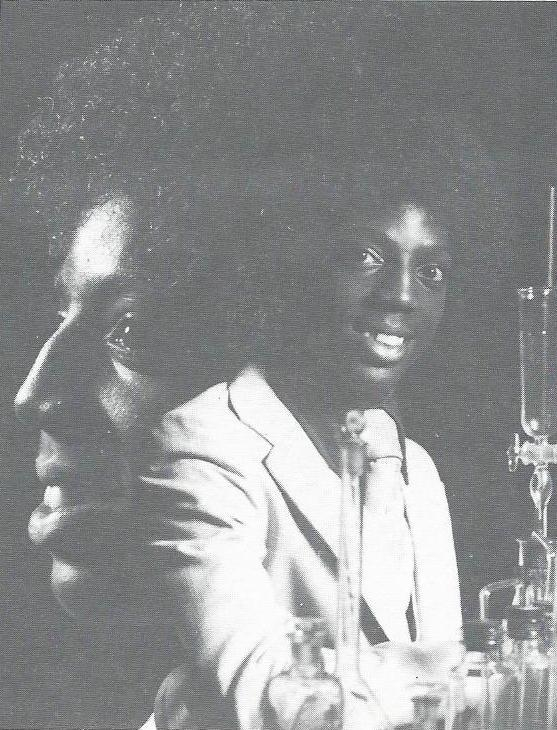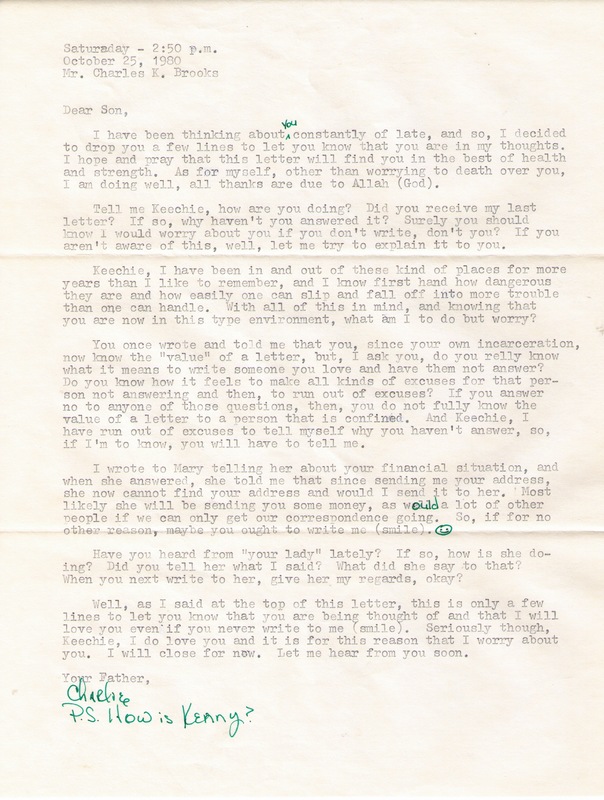Discriminatory Protection
"All are equal before the law and are entitled without any discrimination to equal protection of the law. All are entitled to equal protection against any discrimination in violation of this Declaration and against any incitement to such discrimination." Article 7, Universal Declaration of Human Rights
Charlie Brooks was a man like any other, and like any other man, he was entitled to basic human rights. The Universal Declaration of Human Rights was created to protect such human rights that were often ignored by both authoritative figures and everyday people. The Universal Declaration of Human Rights’ reach, however, seemed to miss Charlie Brooks. After becoming a paralegal and helping other inmates, finding himself dedicated to the Islamic faith, being granted several stays, and fighting to get out of death row, the state of Texas proceeded with the execution anyways, taking away Charlie Brooks’ basic rights to liberty and life. Derrek Brooks, pictured above, mentions in his interview that, “they really didn't have an incentive to want to keep him alive and they was like ‘Hey, this guy's causin' problems for us, cause he's helping all these inmates get out, get out early and get new trials, so let's just go ahead and go with the execution.’” Both of Charlie Brooks’ sons argue that the state of Texas simply wanted to make an example out of Charlie by making him the first man to be executed by lethal injection. It is this, however, revenge and the struggle to demonstrate authority, that leads the very structures intended to protect us to hurt us drastically, and, at times, fatally.
Article 7 of the Universal Declaration of Human Rights states that: "All are equal before the law and are entitled without any discrimination to equal protection of the law. All are entitled to equal protection against any discrimination in violation of this Declaration and against any incitement to such discrimination." This connects directly with both the primary sources included in this exhibit and the oral histories from the Texas After Violence Project site because Charlie Brooks experienced serious discrimination within the United States' judicial system, and this in turn cost him his life. In the oral histories, Keith emphasized the fact that his father did not have a fair trial to begin with. The jury was all white, and this lack of diversity could produce a lack of understanding or sympathy because the United States was built on the foundation of racism, leaving black and African Americans on the bottom of the social hierachy to this day. Charlie Brooks was also unable to present witnesses.
While in prison, he studied the judicial system and was even able to get another person off of death row. Despite his attempts, however, to get his case reconsidered, it was disregarded. There was also a lack of strong enough evidence that Charlie Brooks was even in the room when the crime was committed, and, unfortunately, DNA technology was not available at the time. Charlie Brooks, while in prison, embraced religion and reached out often to his son as depicted in the letter, who also landed in jail at the time. He was a person of faith with hope and a heart who helped others, yet even this demeanor did not grant him the sympathy that he perhaps deserved. This combination of lack of representation, discrimination, and technological disadvantages put a potentially innocence person in straps and dosed with a lethal substance and justified as legal.
This article in the UDHR was included because there is a history of discrimination and unfair legal processes that can work against the same people that it was constructed to protect. Going to prison alone or being tried for a crime drastically disrupts life; it breaks up families, can be devastating financially, and makes life after prison a lot more difficult. People struggle to find jobs and shelter afterwards, so they never really escape the system. Within prison, they are exploited for cheap labor. In his interview Keith said, "We don’t have no boats to go get crack. We don’t have no planes to go to Colombia. They let that stuff come in here. And it’s extremely addictive. And so the person that does crack has a problem. But when they arrest him, they treat him as a criminal. And not so much the guy that’s selling it, but if just you, the user, is caught with it, they will send you to prison like you a criminal, when all you are is an addict." This highlights the issue of the roots of blame and how that in turn effects the supposed villain when in fact they could be the victim. This combination of consequences are drastic and if one is to be tried for a crime and forced through the process then it should be done so fairly and rightfully, as this UDHR article supports. Unfortunately, Charlie Brooks was not granted the benefit of protection that the Universal Declaration of Human Rights intended to offer. This, in turn, should serve as an example to the future of not only the United States government but international governments that without fairness and protection from discrimination, there is no peace and there is certaintly no justice.
By Fraynette Familia
Keith Brooks' interview: http://av.lib.utexas.edu/index.php?title=TAVP:Keith_Brooks_1&gsearch=brooks
Derrek Brooks' Interview: http://av.lib.utexas.edu/index.php?title=TAVP:Derrek_Brooks_3&gsearch=derrek%20brooks


